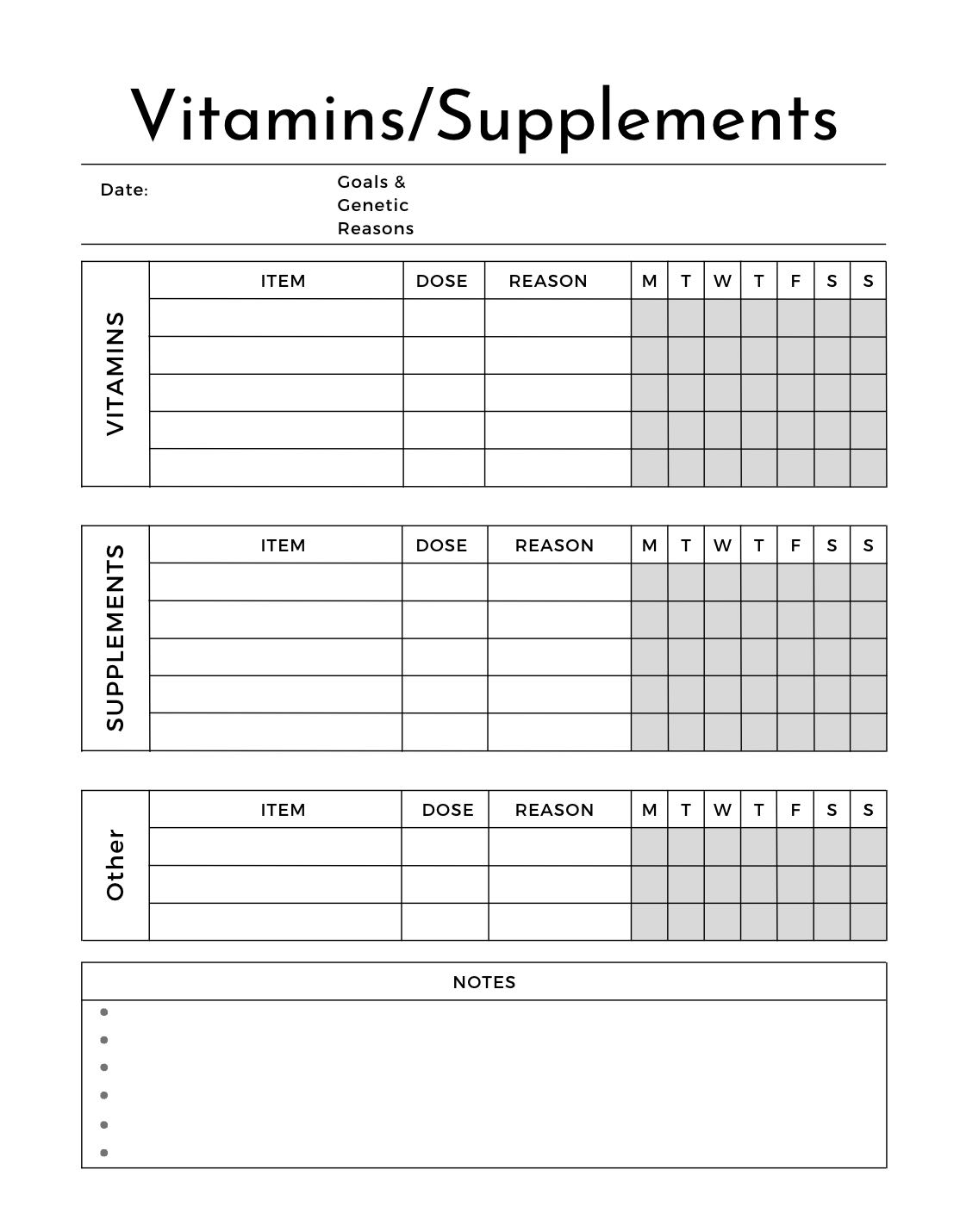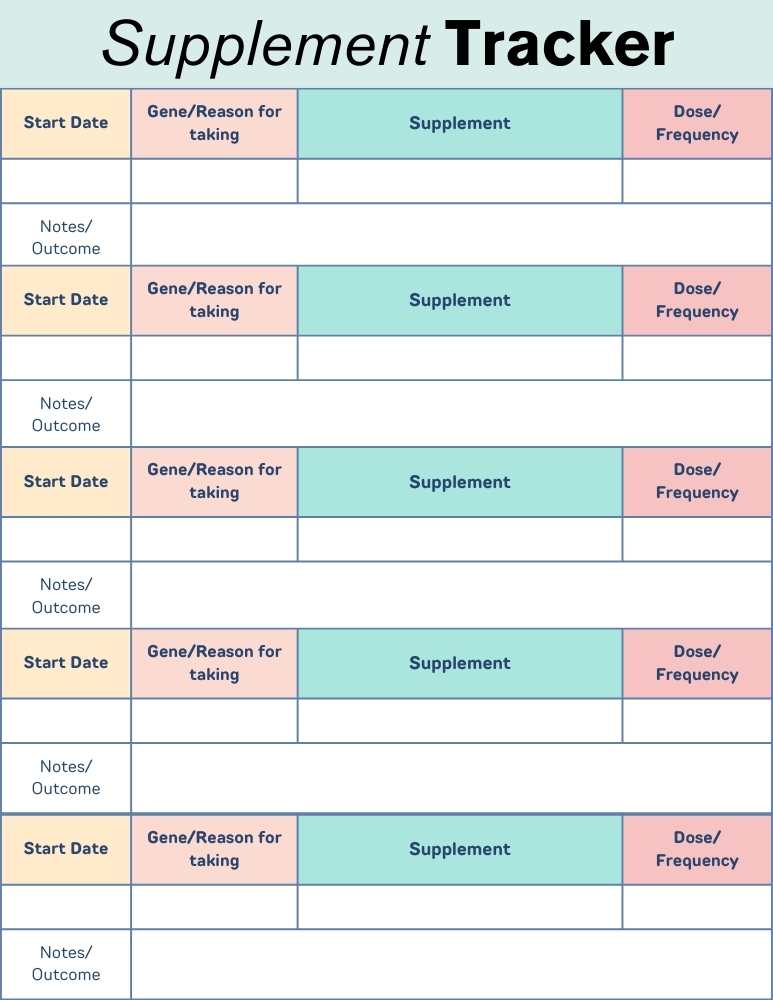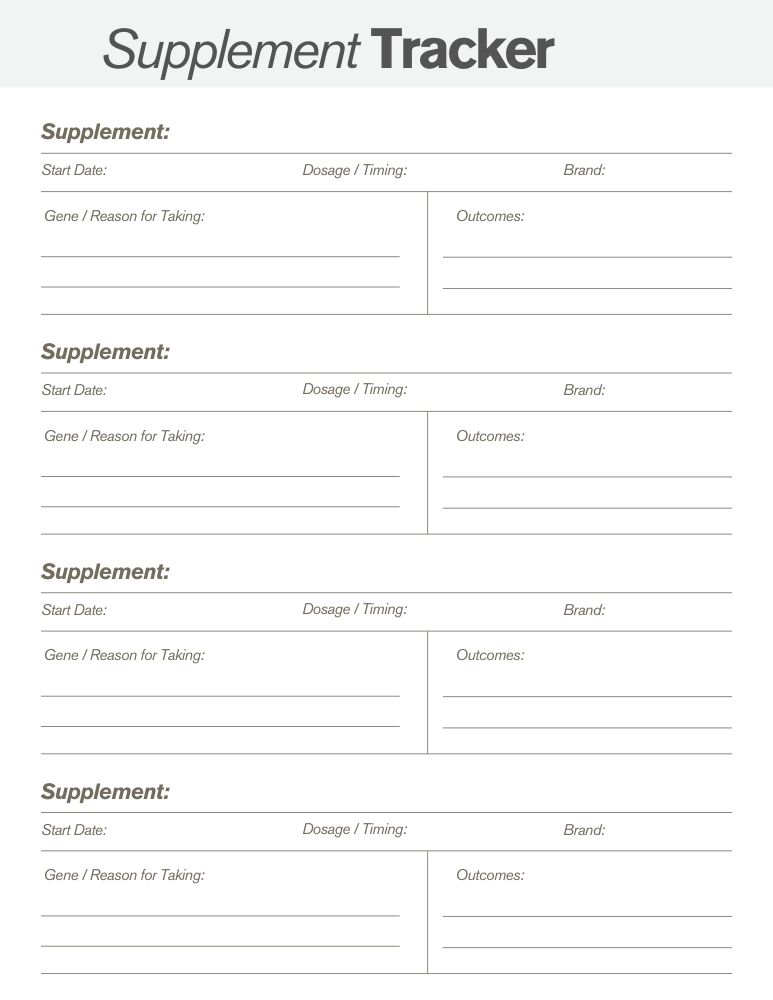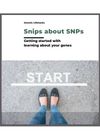Sometimes you just need to print out and hold on to information… I get it. To help you out, I’ve created several printable resources to go along with Genetic Lifehacks articles.
Supplement Tracker – New
Supplement Tracker / Planner to keep track of what you are taking, why you’re taking it, and the outcome you are tracking.
Supplement Tracker 2 – New

Another option for tracking your supplements — write down your goal, why you’re taking the supplement, and the dosage.
Supplements tracker

Have you ever started taking a supplement and later can’t remember what it is supposed to do? Here’s a handy form to keep track of what you are taking and the genetic reason for it. Use it to re-evaluate periodically whether a supplement is working for you.
Download Instructions for AncestryDNA Raw Data (.pdf)
Printable, sharable instructions for how to download your AncestryDNA raw data file. Perfect for health coaches or practitioners to use with clients.
Snips about SNPs
A Free eBook filled with short examples of what you can learn from your genetic raw data.
Download Instructions for 23andMe Raw Data

Printable, sharable instructions for how to download your 23andMe raw data file. Perfect for health coaches or practitioners to use with clients.
Food Sources of Folate (.pdf)
Perfect for sticking on your fridge, this information sheet will help you choose folate-rich food sources. Be sure to check your MTHFR genes and read about folate vs. folic acid as well.
Saturated Fats and Your Genes Workbook ($6.99) Free!
This 35-page .pdf workbook explains how different genetic variants interact with saturated fat. The workbook has room to fill in your family’s genetic data so that you can keep track of everyone’s genetic variants.
Members: See your genotype report here for the Saturated Fat eBook
Research studies on SARS-CoV-2 Treatment Options
A short eBook on research studies about the prevention and mitigation of SARS-CoV-2. Download or print it for whenever you need to reference it again.
More Resources:
Foods High in Histamine:
Detailed chart showing which foods are high in histamine or cause the release of histamine (SIGHI). This is an excellent printable for anyone struggling with a low-histamine diet.
Cost: free
Cronometer is a great online and phone app for tracking your nutrient intake, weight, and activity. Often, I explain in articles how genetic variants can increase your need for certain nutrients (e.g., choline or folate). But how can you know what you’re already getting each day? Tracking what you eat using Cronometer for a week or two will give you a good baseline of how much folate/iron/vitamin B12 you are already getting via your regular diet.
Cost: Free to sign up online, low-cost phone app
NutritionData from self.com is a great tool for determining which foods are high in a specific nutrient. It is a vast database of nutrient information, and you can sort by either 100-g or 200-calorie servings. When you’ve used Cronometer for a week and know you need more B12, head to NutritionData, and find the foods that are highest in B12.
Cost: Free






